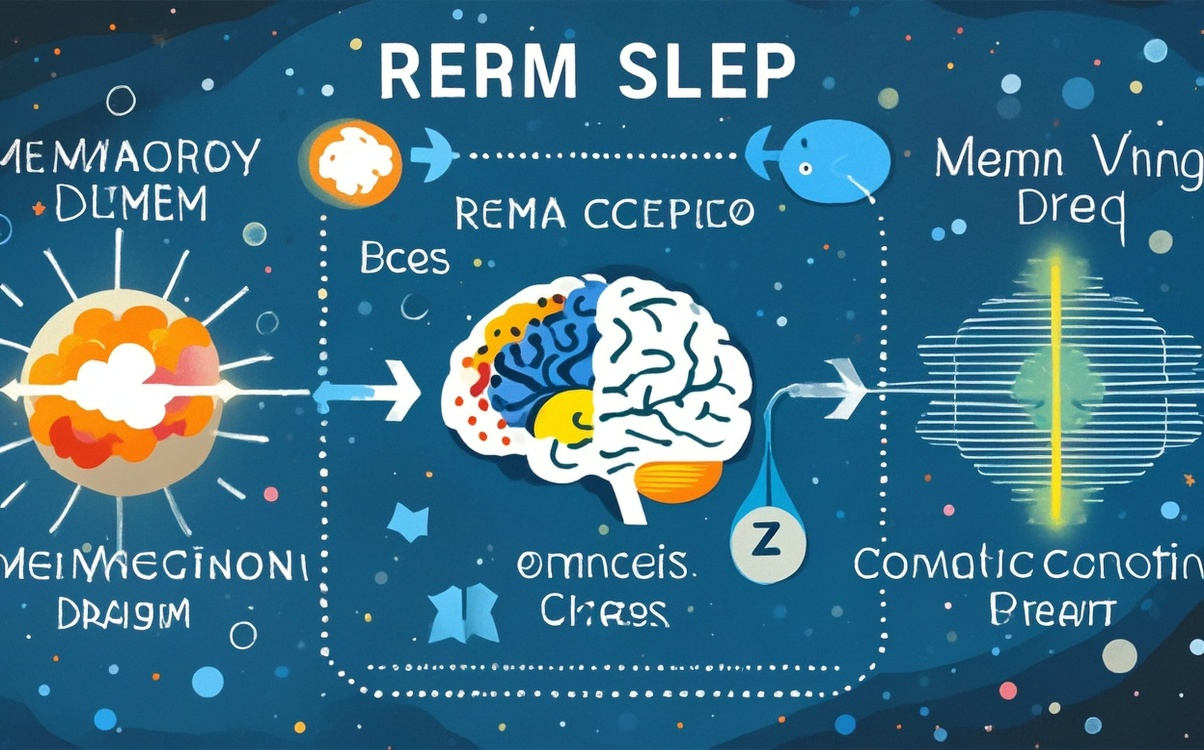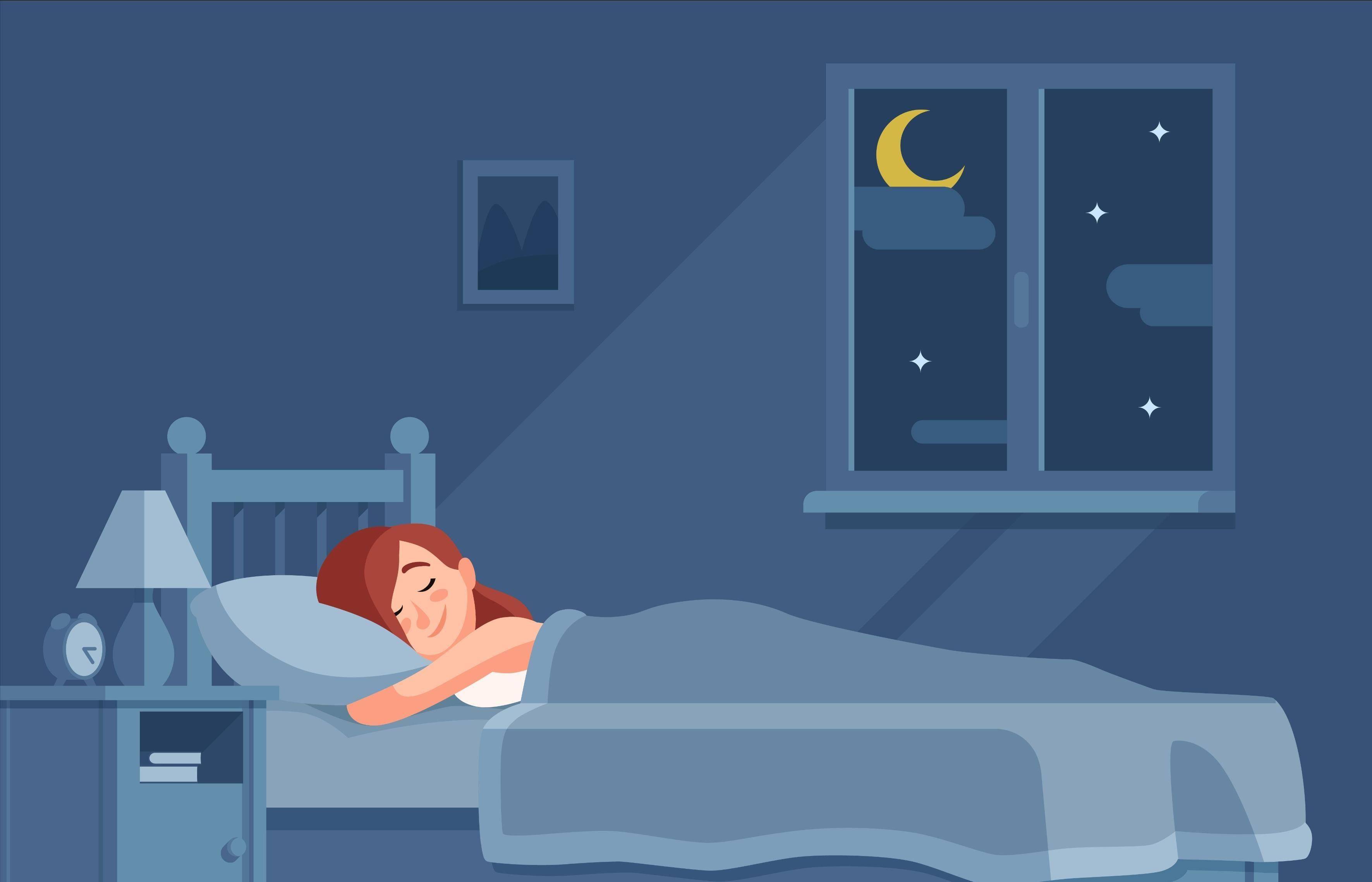Introduction to Sleep and Mental Health
Sleep is more than just a nightly ritual; it's a fundamental pillar of our overall health. When we sleep, our bodies and minds undergo essential processes that help us function at our best during the day. In this section, we'll explore the importance of sleep for overall health, the link between sleep and mental well-being, and how a lack of sleep can affect the brain.
A. Importance of Sleep for Overall Health
Getting enough quality sleep is crucial for maintaining good physical and mental health. During sleep, our bodies repair and regenerate tissues, strengthen the immune system, and consolidate memories. Sleep also plays a key role in regulating hormones that control appetite, metabolism, and stress. Without adequate sleep, we're more susceptible to a range of health issues, from weight gain and heart disease to weakened immunity and mood disorders.
B. The Link Between Sleep and Mental Well-Being
The connection between sleep and mental health is profound. Quality sleep helps regulate our emotions, improve our ability to focus, and enhance our overall mood. On the other hand, poor sleep can lead to irritability, anxiety, and depression. Chronic sleep deprivation has been linked to an increased risk of developing mental health conditions, such as bipolar disorder and schizophrenia. Ensuring you get enough restful sleep is one of the best ways to support your mental well-being.
C. Overview of How Lack of Sleep Affects the Brain
When we don't get enough sleep, our brains suffer. Sleep deprivation can impair cognitive functions like memory, decision-making, and problem-solving. It can also affect the brain's ability to process emotions, leading to heightened emotional reactivity and difficulty managing stress. Over time, chronic sleep loss can even lead to structural changes in the brain, including a reduction in the size of certain areas responsible for emotional regulation and memory. This is why it's so important to prioritize sleep as part of a healthy lifestyle.
Common Sleep Disorders and Their Effects on Mental Health
Sleep disorders can significantly impact both the quality and quantity of sleep, leading to a range of mental health issues. In this section, we'll discuss some of the most common sleep disorders and their effects on mental well-being.
A. Insomnia: Causes, Symptoms, and Its Impact on Mental Health
Insomnia is a sleep disorder characterized by difficulty falling asleep, staying asleep, or both. It can be caused by a variety of factors, including stress, anxiety, and certain medical conditions. People with insomnia often experience symptoms like daytime fatigue, irritability, and difficulty concentrating. Chronic insomnia can have a severe impact on mental health, increasing the risk of developing anxiety and depression. It can also exacerbate existing mental health conditions, making it harder to manage them effectively.
B. Sleep Apnea: How It Disrupts Sleep Patterns and Contributes to Anxiety and Depression
Sleep apnea is a condition where breathing repeatedly stops and starts during sleep. This can lead to fragmented sleep and frequent awakenings, which can disrupt the natural sleep cycle. As a result, people with sleep apnea often feel tired and groggy during the day. The constant sleep interruptions can also contribute to the development of anxiety and depression. Additionally, the lack of oxygen during these episodes can cause further damage to the brain, leading to cognitive and emotional problems.
C. Restless Leg Syndrome: Its Connection to Stress and Mood Disorders
Restless leg syndrome (RLS) is a neurological disorder that causes an irresistible urge to move the legs, often accompanied by uncomfortable sensations. RLS can make it difficult to fall asleep and stay asleep, leading to sleep deprivation. The condition is often associated with high levels of stress and can contribute to the development of mood disorders like anxiety and depression. Managing stress and addressing the underlying causes of RLS can help improve sleep quality and mental well-being.
D. Narcolepsy: Understanding Its Influence on Emotional Stability
Narcolepsy is a chronic sleep disorder that affects the brain's ability to regulate sleep-wake cycles. People with narcolepsy often experience excessive daytime sleepiness, sudden sleep attacks, and cataplexy (a sudden loss of muscle tone). These symptoms can be highly disruptive and can lead to feelings of embarrassment, frustration, and social isolation. The emotional toll of narcolepsy can be significant, and it's not uncommon for individuals with the condition to experience anxiety and depression. Proper diagnosis and treatment are essential for managing the symptoms and improving emotional stability.
The Role of Sleep in Emotional Regulation
Sleep plays a critical role in our ability to regulate emotions. In this section, we'll explore how sleep impacts emotional management, the relationship between REM sleep and emotional processing, and the effects of sleep deprivation on emotional reactivity.
A. How Sleep Impacts the Ability to Manage Emotions
Quality sleep is essential for emotional regulation. During sleep, the brain processes and consolidates emotional experiences, helping us to better manage our feelings and reactions. When we don't get enough sleep, our ability to regulate emotions is impaired. This can lead to increased irritability, mood swings, and a reduced capacity to handle stress. Getting adequate sleep is crucial for maintaining emotional balance and resilience.
B. The Relationship Between REM Sleep and Emotional Processing
REM (Rapid Eye Movement) sleep is a stage of sleep where the brain is highly active, and dreams occur. This stage is particularly important for emotional processing. During REM sleep, the brain integrates and processes emotional experiences, helping to reduce the intensity of negative emotions and enhance positive ones. Research has shown that REM sleep is crucial for emotional healing and the resolution of traumatic experiences. Ensuring you get enough REM sleep is vital for emotional well-being.
C. The Effects of Sleep Deprivation on Emotional Reactivity
Sleep deprivation can have a significant impact on emotional reactivity. When we don't get enough sleep, the amygdala, a part of the brain responsible for processing emotions, becomes more active. This can lead to heightened emotional responses, making it harder to manage stress and maintain a calm demeanor. Sleep-deprived individuals are more likely to experience intense emotional reactions, such as anger, sadness, and anxiety. Prioritizing sleep is essential for maintaining emotional stability and reducing the risk of emotional dysregulation.
Tips for Improving Sleep Quality to Enhance Mental Health
Improving sleep quality is one of the best ways to support mental health. In this section, we'll provide practical tips for establishing a consistent sleep schedule, creating a relaxing bedtime routine, and creating a sleep-conducive environment. We'll also discuss diet and exercise recommendations for better sleep and mindfulness techniques for reducing stress before bed.
A. Establishing a Consistent Sleep Schedule
One of the most effective ways to improve sleep quality is to establish a consistent sleep schedule. Go to bed and wake up at the same time every day, even on weekends. This helps regulate your body's internal clock, making it easier to fall asleep and wake up naturally. Consistency is key, so try to stick to your schedule as closely as possible.
B. Creating a Relaxing Bedtime Routine
A relaxing bedtime routine can signal to your body that it's time to wind down and prepare for sleep. Consider incorporating activities that promote relaxation, such as reading a book, taking a warm bath, or practicing gentle stretches. Avoid stimulating activities, like using electronic devices, as the blue light emitted can interfere with your ability to fall asleep. A calming bedtime routine can help you transition into a restful state more easily.
C. The Importance of a Sleep-Conducive Environment
Creating a sleep-conducive environment is essential for getting quality sleep. Make sure your bedroom is dark, quiet, and cool. Invest in comfortable bedding and a supportive mattress. Consider using blackout curtains, earplugs, or a white noise machine to block out any distractions. A comfortable and peaceful sleep environment can make a significant difference in the quality of your sleep.
D. Diet and Exercise Recommendations for Better Sleep
Diet and exercise play a crucial role in sleep quality. Avoid heavy meals, caffeine, and alcohol close to bedtime, as they can disrupt your sleep. Instead, opt for a light snack if you're hungry, such as a banana or a small bowl of oatmeal. Regular exercise can also help improve sleep, but avoid vigorous activity close to bedtime. Aim for at least 30 minutes of moderate exercise most days of the week, and try to finish your workout a few hours before you plan to go to bed.
E. Mindfulness and Relaxation Techniques for Reducing Stress Before Bed
Mindfulness and relaxation techniques can help reduce stress and promote better sleep. Try deep breathing exercises, progressive muscle relaxation, or guided meditation. These practices can help calm your mind and body, making it easier to fall asleep. You can also use apps or online resources to guide you through these techniques. Incorporating mindfulness and relaxation into your bedtime routine can significantly improve your sleep quality and mental well-being.
are several signs that indicate you may need professional help with your sleep issues. If you consistently have trouble falling or staying asleep, feel excessively sleepy during the day, or experience frequent awakenings, it may be time to seek assistance. Other signs include snoring, pauses in breathing during sleep, and unrefreshing sleep. If your sleep problems are affecting your daily life, work, or relationships, it's important to consult a healthcare provider.







